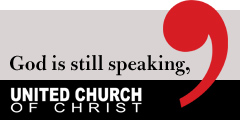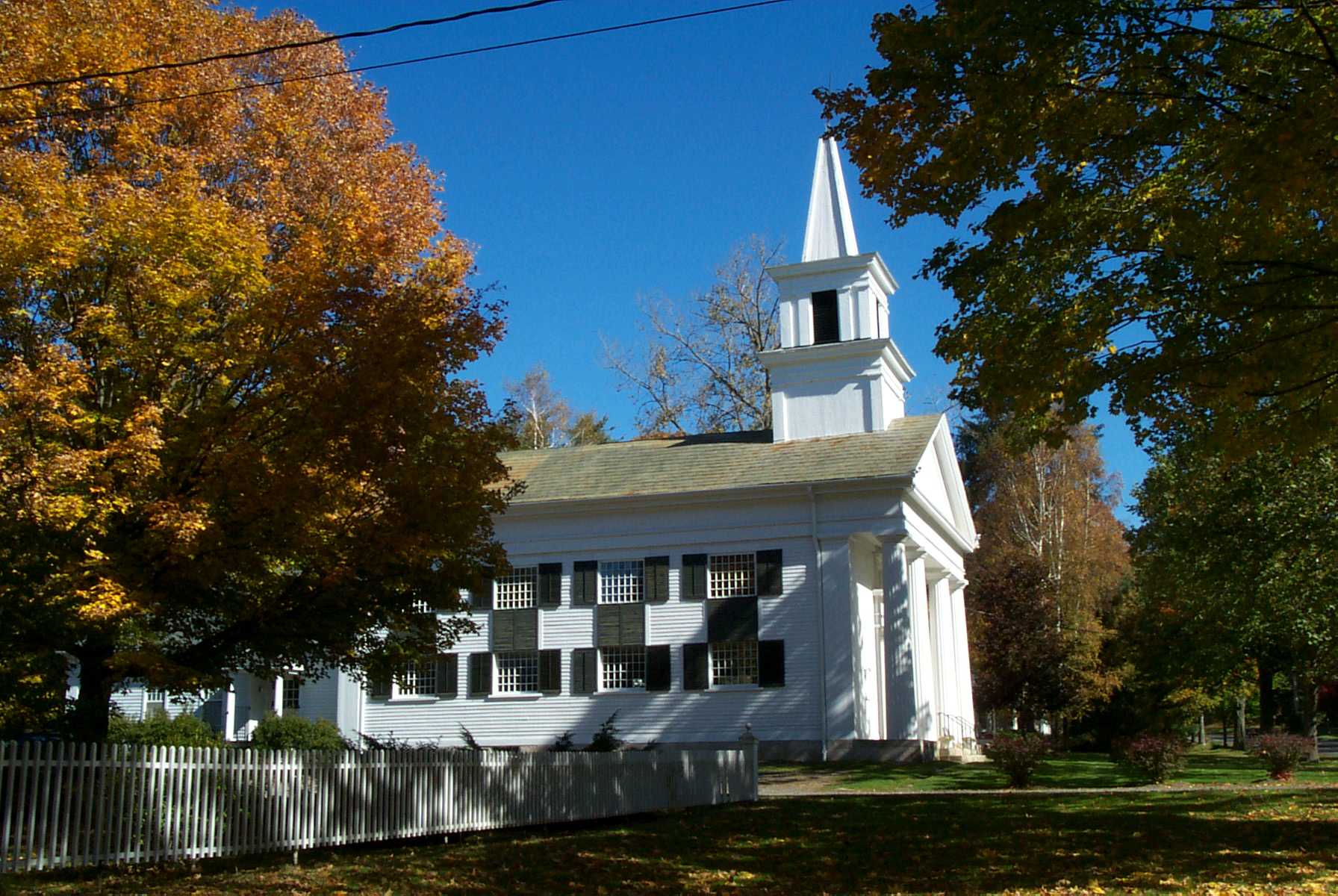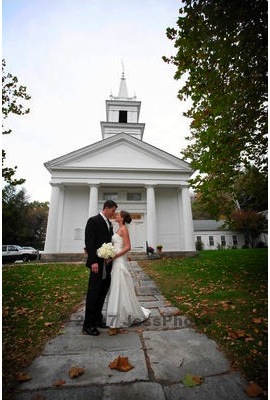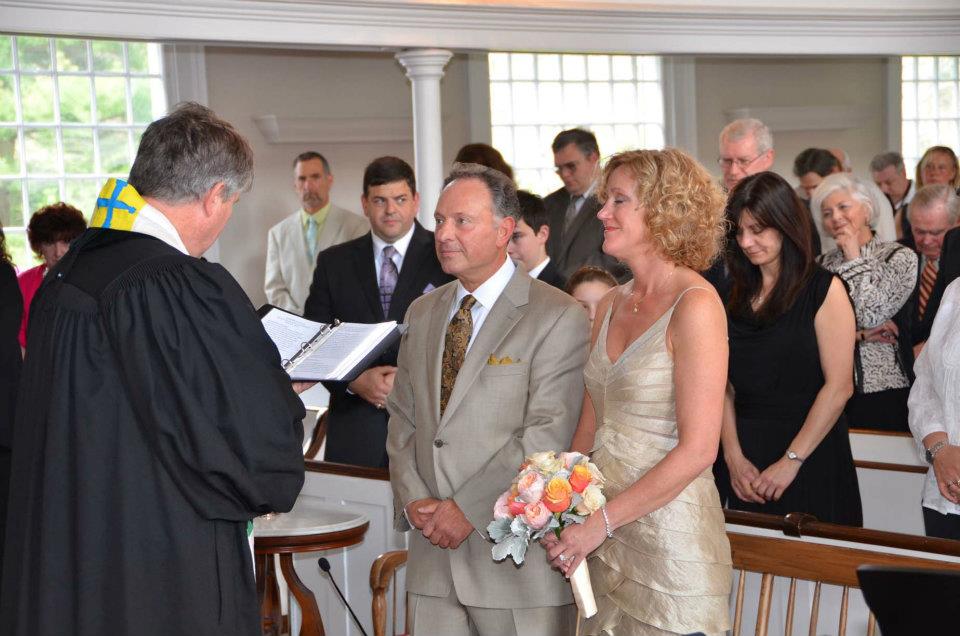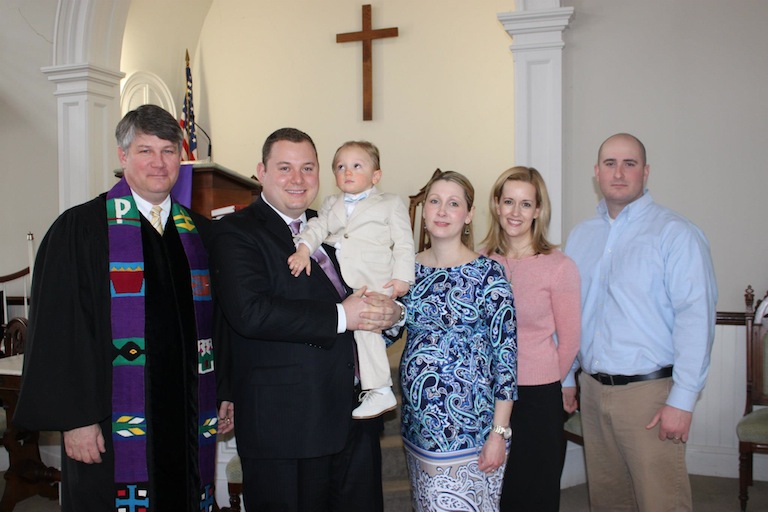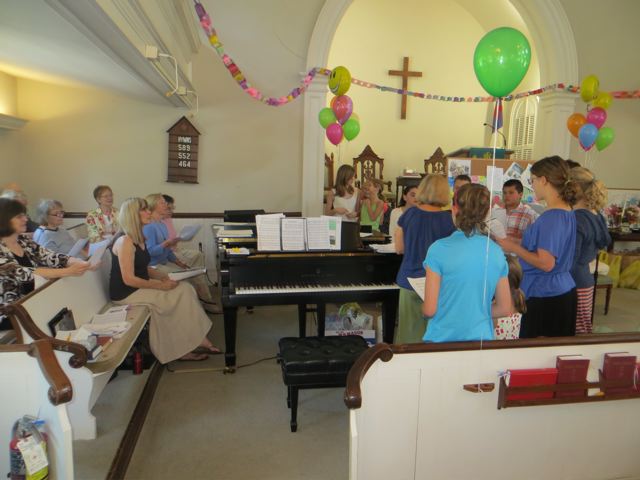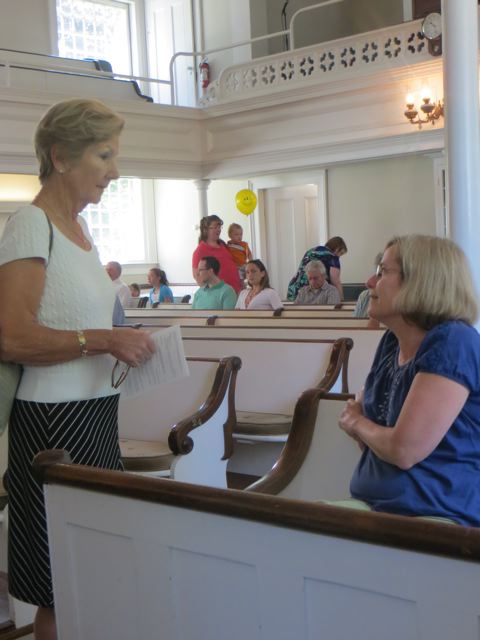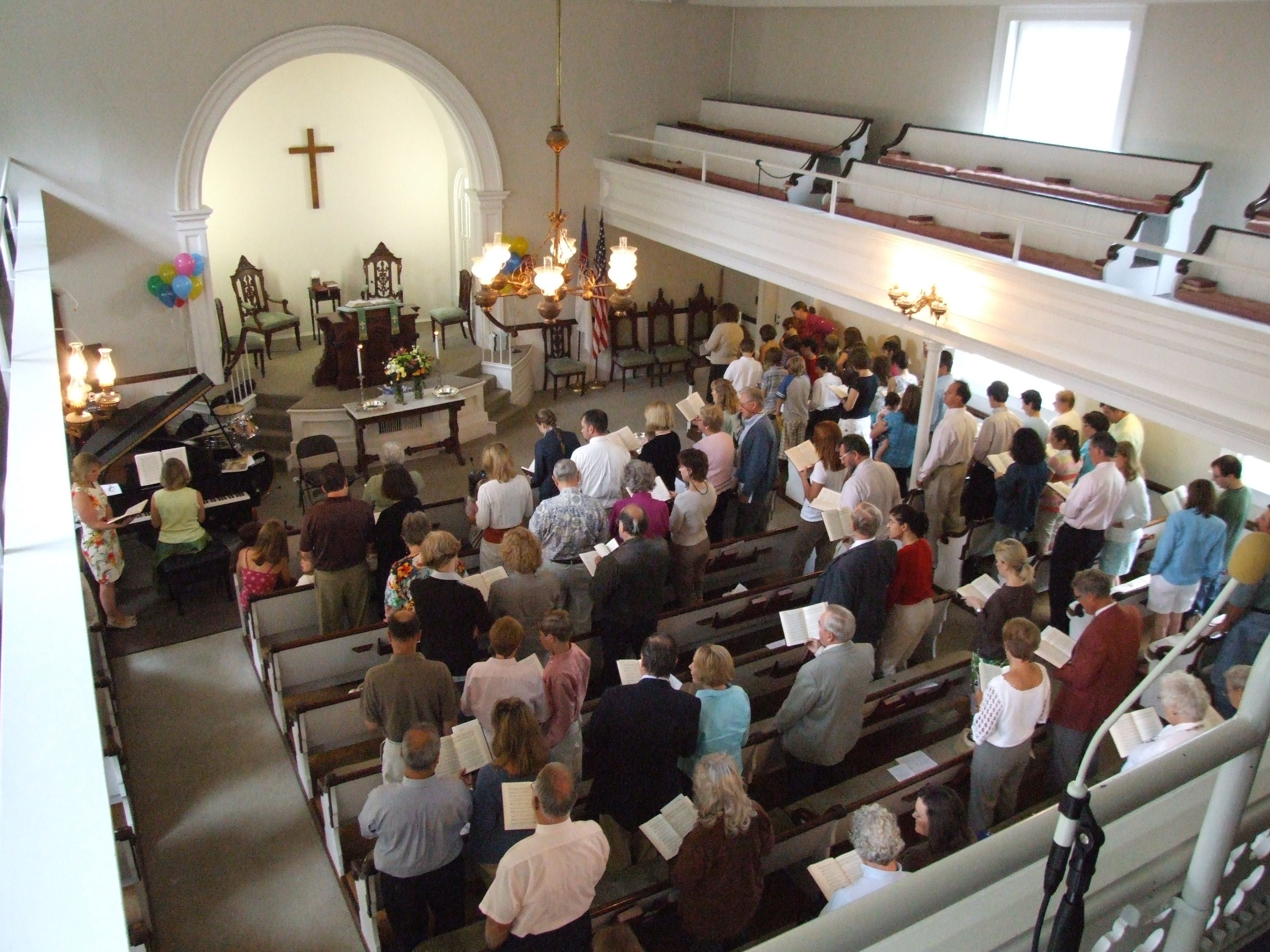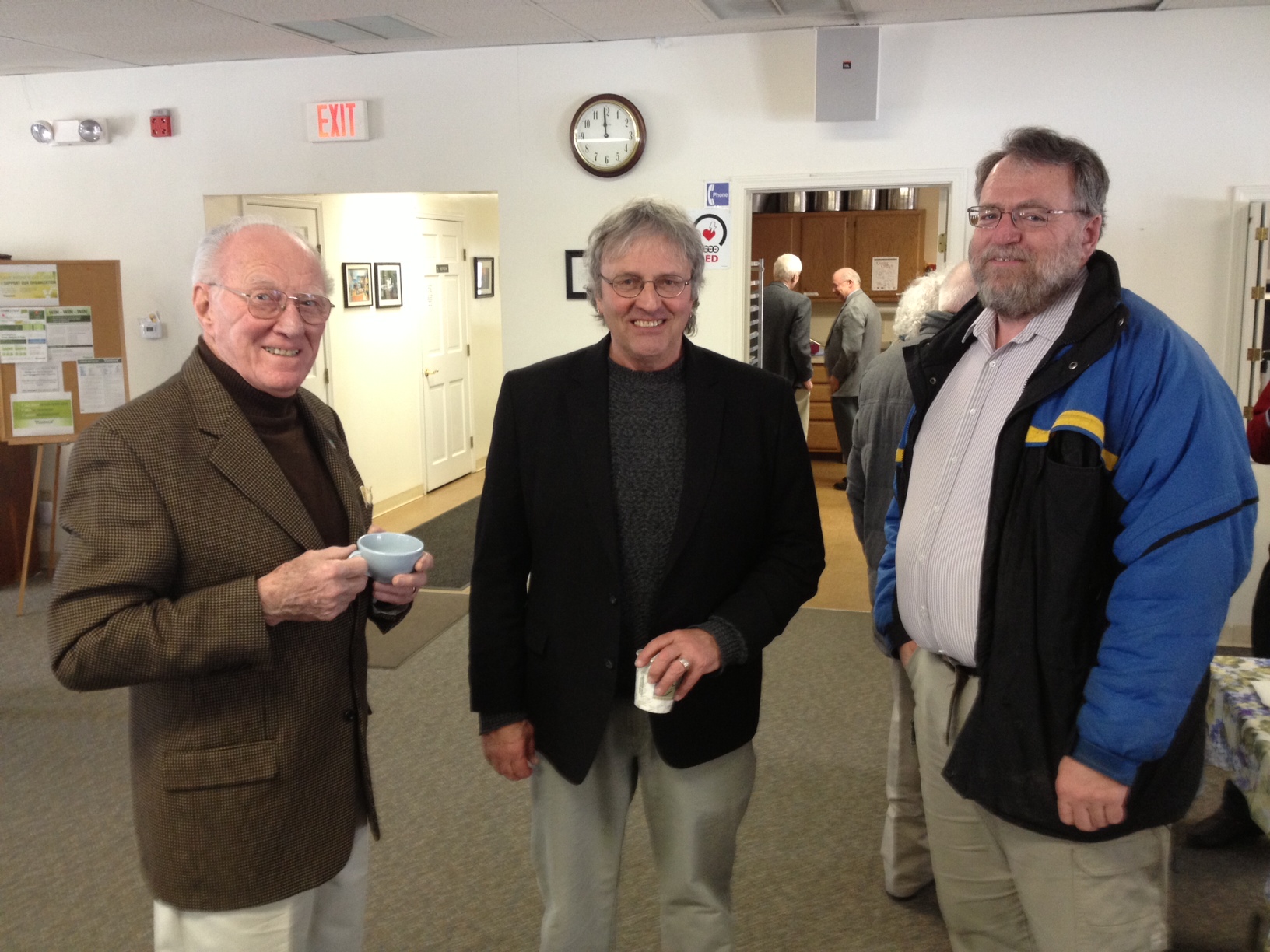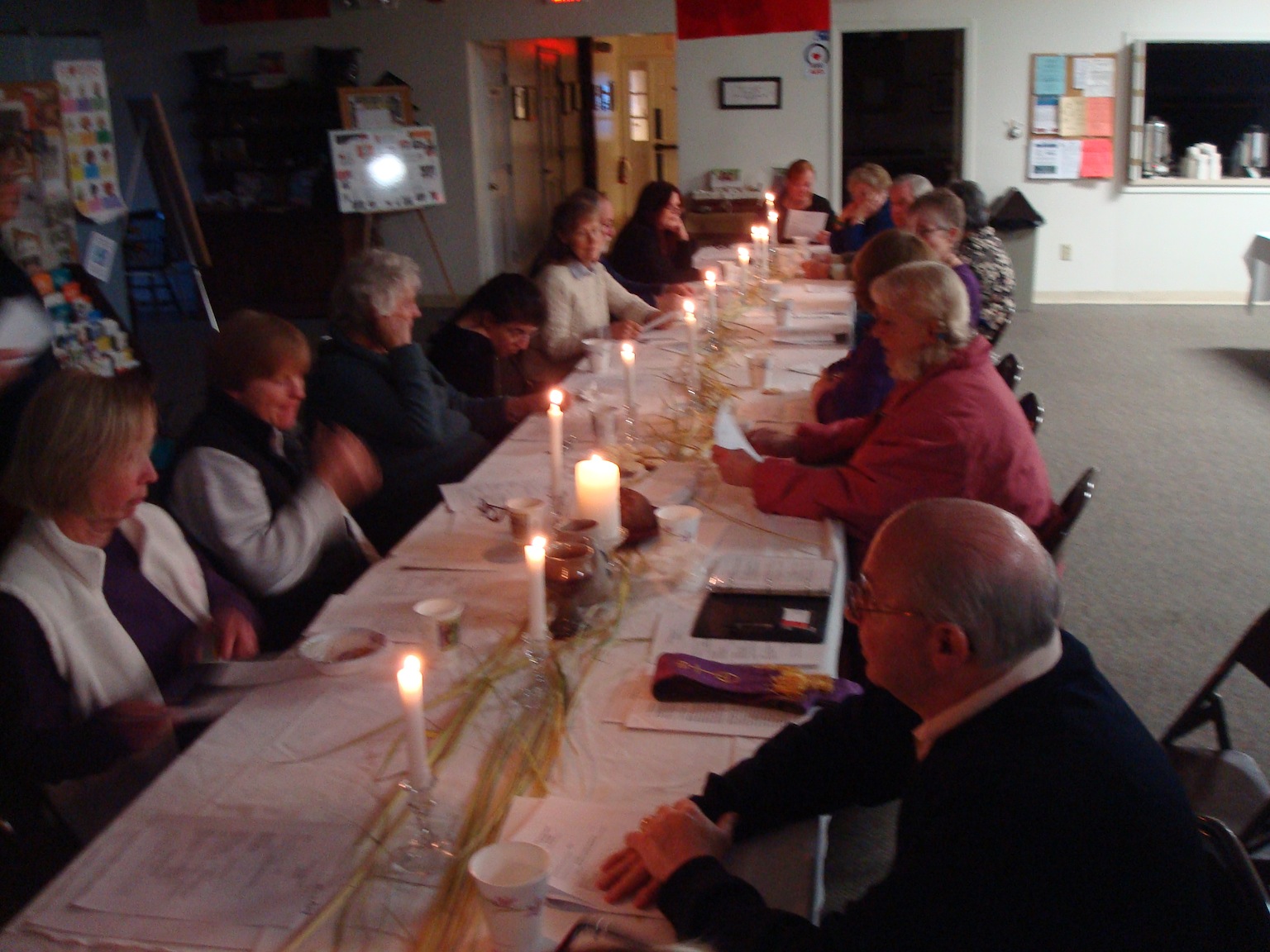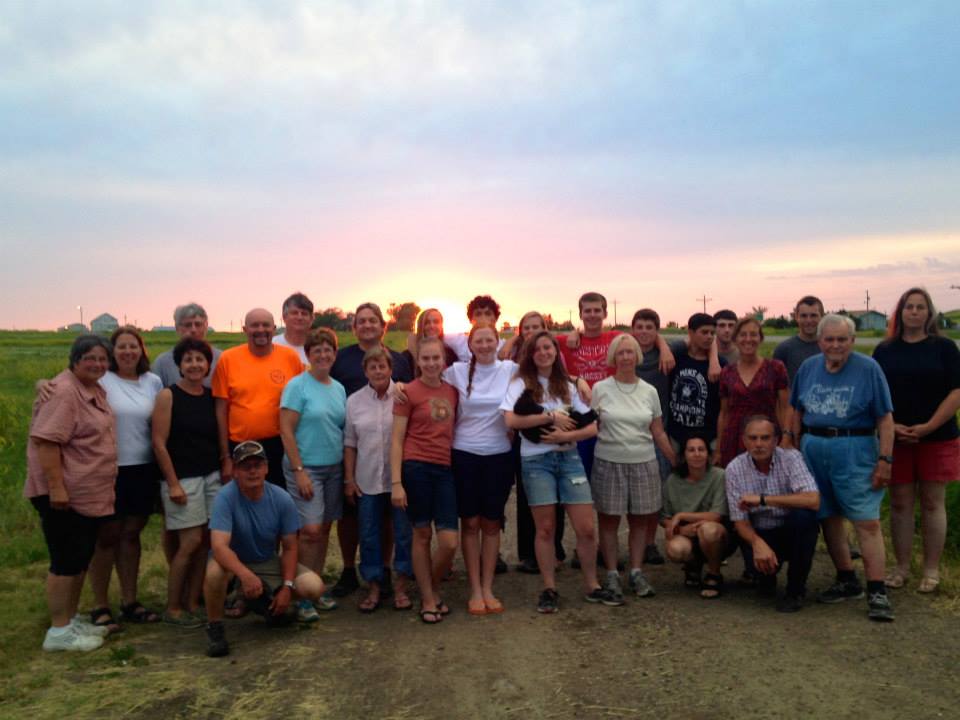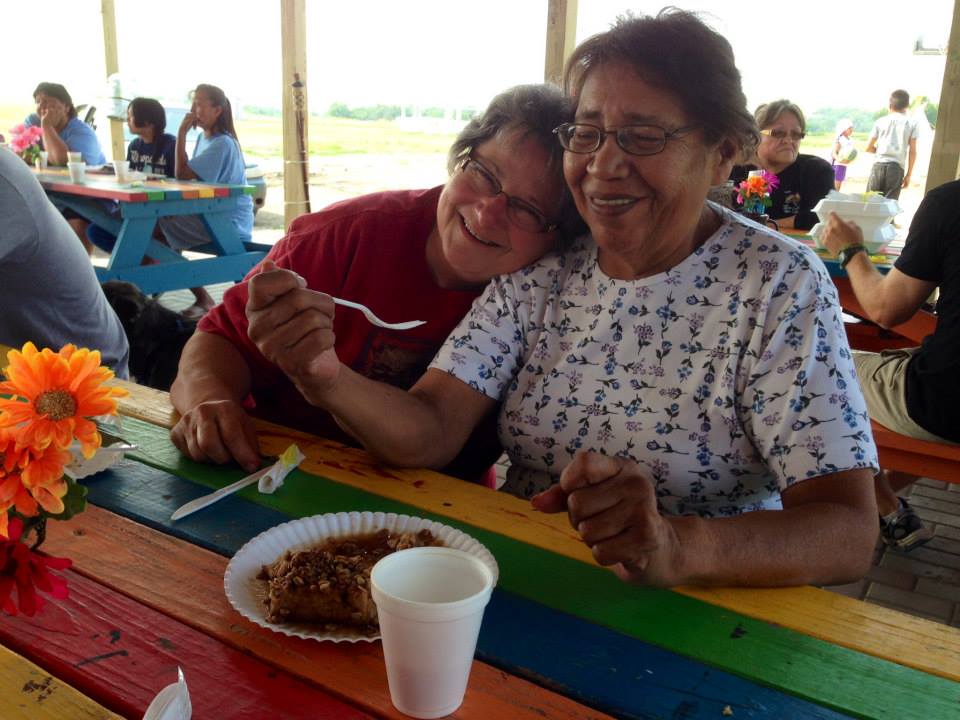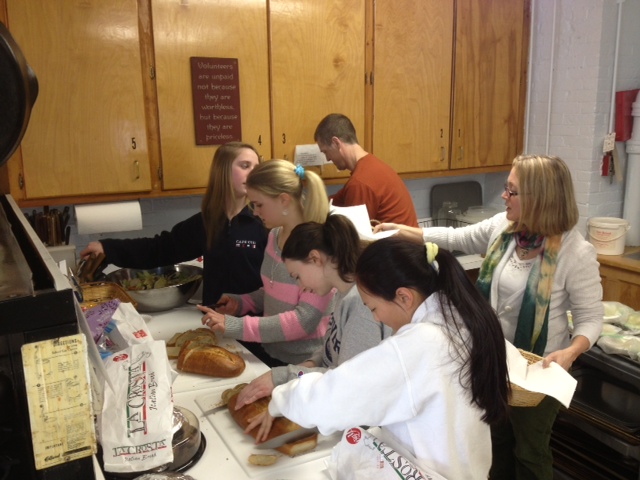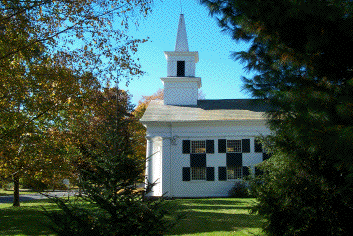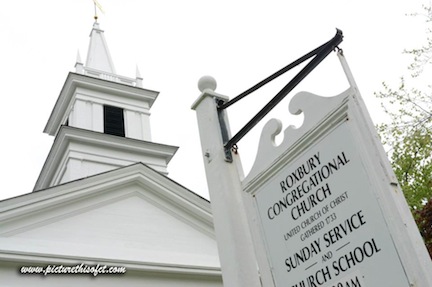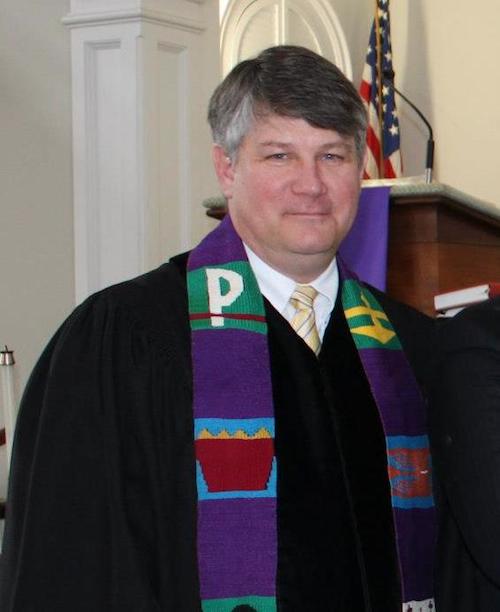About Us

What is Congregationalism?
As Congregationalists, we believe in the freedom and right of each person to have their own individual and personal relationship with God. We believe that no institution, not even a church, stands between God and us as individuals. To help us nurture our relationship with God, we have God’s grace, the Bible, prayer, worship, the accumulated wisdom of the ages, and a supportive community with which to journey.
As a local Congregational Church, we are locally autonomous. We, the congregation, govern our own ministry, hire our own clergy, own our own property, envision our own call to service and worship, and define our own values and vision. There is no ecclesial authority over us. As seekers, not holders, of truth, we agree to honor each other’s interpretation of the Bible and personal faith journey. We seek to affirm one another along life’s pathway while being held together by unconditional love.
The Origin of Our Values
The Congregational Church tradition dates back to1620 and the voyage of the Pilgrims on the Mayflower to the “New World.” They came to America seeking religious freedom and an opportunity to worship and minister as a community of equals. From them, we have inherited a wonderful spiritual legacy, one that is uniquely suited to the needs of our contemporary world.
The Roxbury Congregational Church has its' earliest roots in the Congregational tradition from its founding in the 1700s. It later became a member congregation of the United Church of Christ. Congregational churches are Protestant Christian churches practicing Congregationalist church governance, in which each congregation independently and autonomously runs its own affairs.
Many Congregational churches claim their descent from a family of Protestant denominations formed on a theory of union published by the theologian Robert Browne in 1592. These arose from the Nonconformist religious movement during the Puritan Reformation of the Church of England. In Great Britain, the early Congregationalists were called separatists or independents to distinguish them from the similarly Calvinistic Presbyterians. Some Congregationalists in Britain still call themselves Independent.
Congregational churches were widely established in the Plymouth Colony and the Massachusetts Bay Colony, later New England. The model of Congregational churches was carried by migrating settlers from New England into New York State and then into the "Old North West," the North-West Territory, won in the American Revolution, now the states of Illinois, Indiana, Michigan, Ohio, and Wisconsin (and a small portion of Minnesota). With their insistence on independent local bodies, they became important in many social reform movements, including abolitionism, temperance, and women's suffrage. Modern congregationalism in the USA is split into three bodies, most becoming the United Church of Christ, with which most local Congregational churches affiliate and which is also the most theologically progressive.
Statement of Faith
United Church of Christ Statement of Faith—adapted by Robert V. Moss
We believe in God, the Eternal Spirit, who is made known to us in Jesus our brother, and to whose deeds we testify:
God calls the worlds into being, creates humankind in the divine image, and sets before us the ways of life and death.
God seeks in holy love to save all people from aimlessness and sin.
God judges all humanity and all nations by that will of righteousness declared through prophets and apostles.
In Jesus Christ, the man of Nazareth, our crucified and risen Lord,God has come to us and shared our common lot, conquering sin and death and reconciling the whole creation to its Creator.
God bestows upon us the Holy Spirit, creating and renewing the church of Jesus Christ, binding in covenant faithful people of all ages, tongues, and races.
God calls us into the church to accept the cost and joy of discipleship, to be servants in the service of the whole human family, to proclaim the gospel to all the world and resist the powers of evil, to share in Christ's baptism, and eat at his table, to join him in his passion and victory.
God promises to all who trust in the gospel forgiveness of sins and fullness of grace, courage in the struggle for justice and peace, the presence of the Holy Spirit in trial and rejoicing, and eternal life in that kingdom which has no end.
Blessing and honor, glory and power be unto God.
Amen.
From the Preamble of the Constitution of the United Church of Christ:
The United Church of Christ acknowledges as its sole head, Jesus Christ, Son of God and Savior. It acknowledges as kindred in Christ all who share in this confession. It looks to the Word of God in the Scriptures, and to the presence and power of the Holy Spirit, to prosper its creative and redemptive work in the world. It claims as its own the faith of the historic Church expressed in the ancient creeds and reclaimed in the basic insights of the Protestant Reformers. It affirms the responsibility of the Church in each generation to make this faith it's own in reality of worship, in honesty of thought and expression, and in the purity of heart before God. In accordance with the teaching of our Lord and the practice prevailing among evangelical Christians, it recognizes two sacraments: Baptism and the Lord's Supper or Holy Communion.
